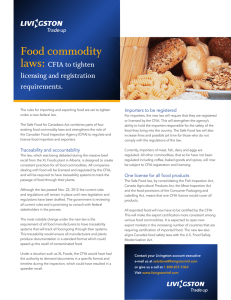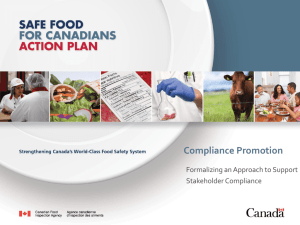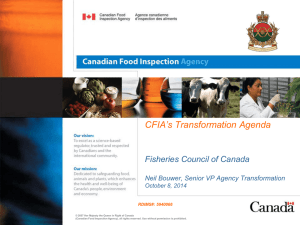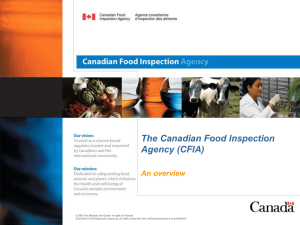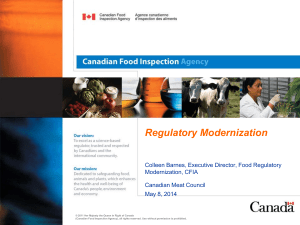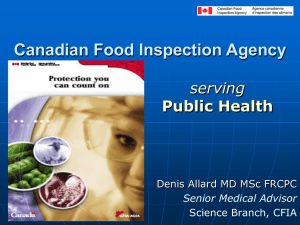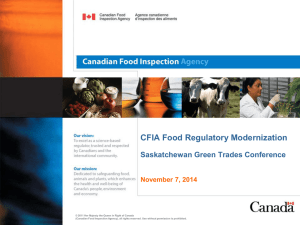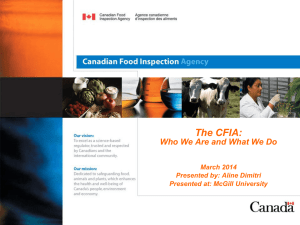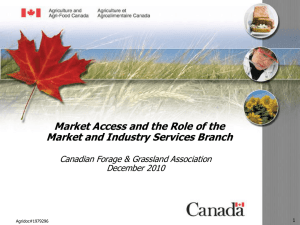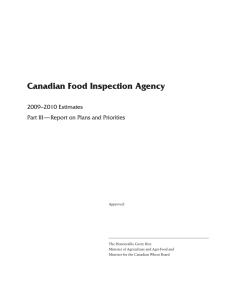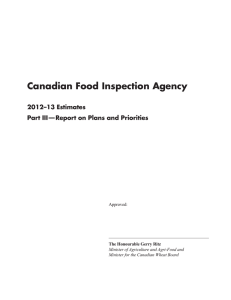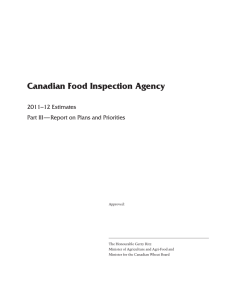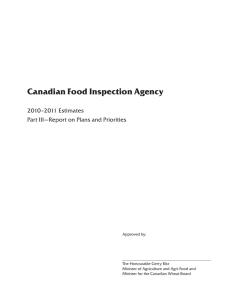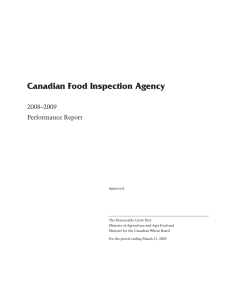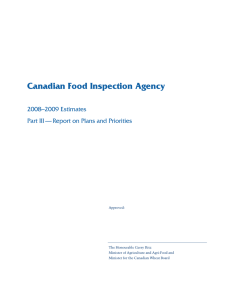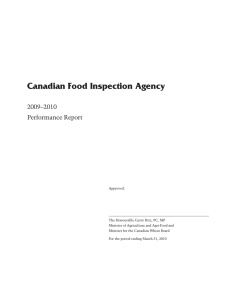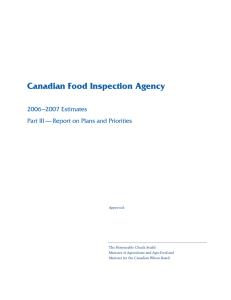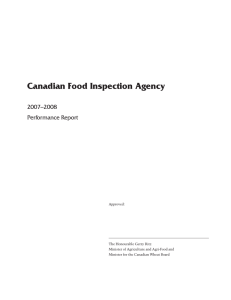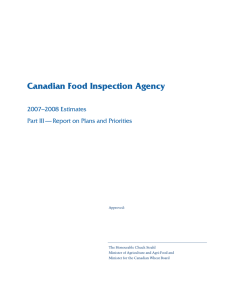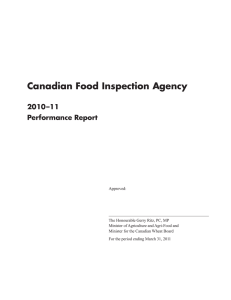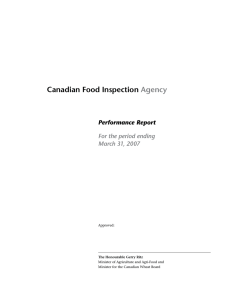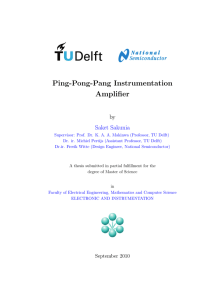Five questions every
advertisement
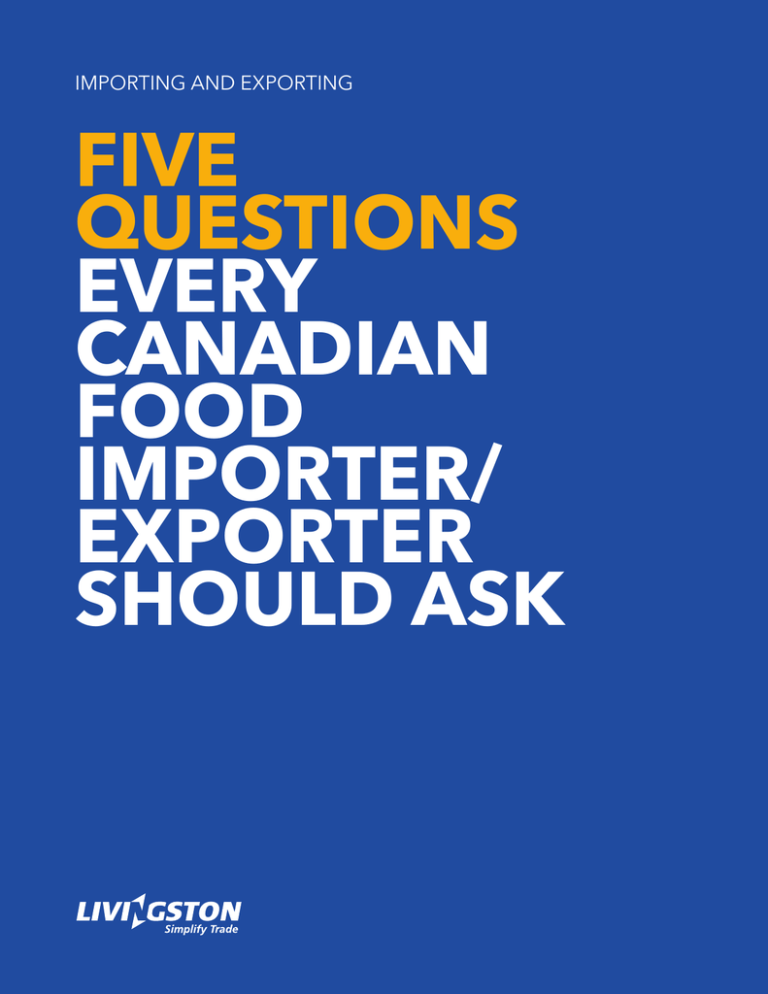
Importing and Exporting Five questions every Canadian food importer/ exporter should ask Importing and Exporting Five questions every Canadian food importer/exporter should ask The Canadian Food Inspection Agency’s (CFIA) Safe Food for Canadians Act is currently scheduled to come into effect in 2015. The modernization act will see CFIA implement consistent practices for all food commodities – from coffee and baked goods to baby formula – many not previously subject to CFIA registration and licensing. This means a series of new requirements for companies that import or export food commodities as well as companies that prepare food commodities for international or interprovincial trade. Among the requirements are mandatory federal licenses, a Preventative Food Safety Control Plan including recall plans, record keeping requirements and a new Livingston recommends you engage the expertise of a inspection model. partner, one experienced in food safety and handling operations, to help you draft and implement your plan. To help you prepare, we’ve developed five questions you need to ask yourself to ensure your food imports into (and exports from) Canada are compliant. 2 How will your company manage its new licensing requirements? Licensing will be a mandatory requirement under the Safe Food for Canadians Act. Companies subject to the new regulations will be required to register and apply for licenses With new food inspection regulations coming into effect in 2015, now is the time to ask: Is your business ready? through a CFIA web portal, and must renew every two years. Details on vendor name, product description and sku # are all required to be noted within the portal at time of registration. Every importer’s requirements will be different. Your customs provider should be able to help you determine the most 1 Does your company have a Food Safety Control Plan? Under CFIA’s new food inspection regulations, every company that deals with food and food products will be effective way to manage your licenses. 3 Do you have a recall/traceability plan in place? required to have a detailed Preventative Food Safety Preventative measures are a key component of CFIA’s Control Plan (PFSCP). Your written plan must document all modernization and food safety efforts. Even companies that aspects of your food handling operation, including your aren’t the licensed importer must have procedures in place facilities, equipment, employee training, sanitation and pest to track and trace any food product. It’ll be up to you to control, transportation, storage and more. You must also demonstrate that your documents detail any and all product demonstrate your plan’s effectiveness and scalability before ingredients and that your books and records contain a full implementation. trail of your goods. Those records can be requested by CFIA Work with your customs provider to conduct a self-audit to assess your own compliance and ensure you’re ready for a CFIA audit if necessary. 5 Do you regularly export food products? Under new regulations, CFIA requires that exports affected by the new standards also meet the standards of the importing country – and Canadian standards may not align with all other countries (for example, Canada and U.S. are currently operating under different standards). Livingston recommends that you take a look at your export processes today, and determine how easily you’ll be able to adapt to new regulations while maintaining compliance. Understanding the costs of non-compliance As part of the modernization rollout, CFIA will be introducing new contraventions based on level of risk and noncompliance, including monetary penalties up to a maximum of $25,000 per infraction. Companies will need to ensure and must be provided within 24 hours if it is determined that they understand their level of risk and potential that a food hazard exists. Recall records should reflect “one exposure under the AMPS system. step forward and one step back” standards to ensure that all information is accurately captured. Work with the experts To ensure your continued compliance with CFIA regula- Your customs provider can help you develop your plan. tions – and to ensure your supply chain continues to run Livingston recommends that, once you have your recall plan smoothly – now is the time to begin planning. in place, you work through different scenarios to ensure you can account for all products at all times, tracking ingredients, Livingston International has extensive experience working imports, exports and domestic sales. with CFIA and food importers of all sizes. We can help you assess your readiness and begin developing your food 4 Have you measured and documented your compliance history? safety and recall plans. Contact us today to learn more. Your company’s compliance history will be an important factor in demonstrating your ability to meet all of CFIA’s new requirements. CFIA, supported by the Canada Border Services Agency (CBSA), will want to ensure that all food importers are exercising due diligence and reasonable FreshDesigns - Five questions every Canadian food importer/exporter should ask - 2015 care in managing their businesses; CFIA will be conducting risk-based audits to ensure companies can demonstrate appropriate levels of compliance. If you’ve ever been audited by CFIA or cited for non-compliance, it’s imperative that you take and implement corrective action where indicated, and that you document your processes fully. www.livingstonintl.com Contact Livingston Have questions or need help with your shipments? Contact your account executive, write to us at: simplify@livingstonintl.com or give us a call at 1-800-837-1063
